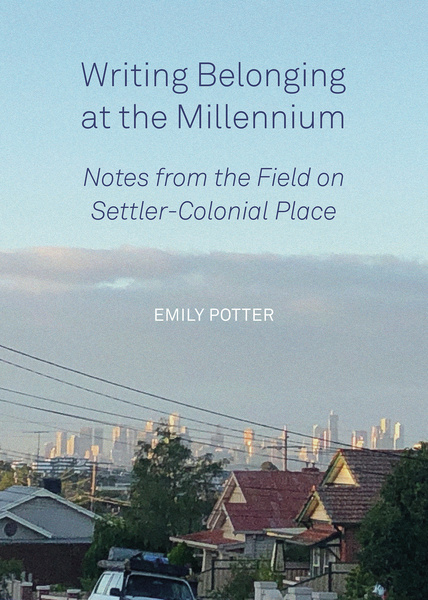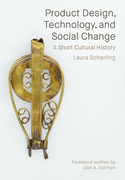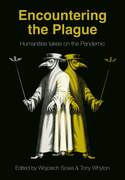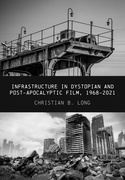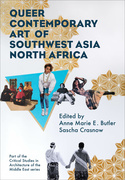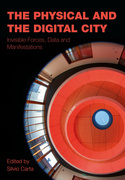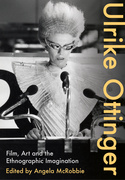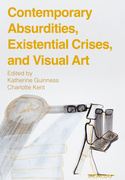Writing Belonging at the Millennium (Book)
Notes from the Field on Settler-Colonial Place
Writing Belonging at the Millennium brings together two pressing and interrelated matters: the global environmental impacts of post-industrial economies and the politics of place in settler-colonial societies.
Edition
In Writing Belonging at the Millennium, Emily Potter critically considers the long-standing settler-colonial pursuit of belonging manifested through an obsession with firm and stable ground. This pursuit continues across the field of the postcolonial nation today; the recognition of colonization’s destructive impacts on humans and environments troublingly generates a renewed desire to secure non-indigenous belonging. Focusing on the crucial role that Australia’s contemporary literature plays in shaping ideas of place and its inhabitation, Potter tracks non-indigenous belonging claims through a range of fiction and non-fiction texts to examine how settler-colonial anxieties about belonging intersect with intensifying environmental challenges. Significantly, she proposes that new understandings of unsettled and uncertain non-indigenous belonging may actually be fruitful context for decolonizing relations with place – something that is imperative in a time of heightened global environmental crisis.
Emily Potter is an associate professor in writing and literature in the School of Communication and Creative Arts, Deakin University.
Introduction
Chapter One: Anxious Belonging
Chapter Two: Literary Expectations: Grounding Belonging
Chapter Three: Getting Lost with Nikki Gemmell
Chapter Four: Redeeming Environments
Chapter Five: Desiccated and Infective: Writing in Thea Astley’s Drylands
Chapter Six: The Past is All Around: Chloe Hooper’s A Child’s Book of True Crime
Chapter Seven: Toxic Imaginaries: Undoing Origins and Endings
Afterword
'To read Potter’s book is—if you have not already—to begin re-cognising an understanding of the way literary texts by non-Indigenous writers absorb, respond to, repeat and/or critically illuminate social discourses that co-construct historical moments. [...] The challenge is: how, during a time of intensifying ecological disaster, are we to avoid reactivating narratives that re-install and re-naturalise non-Indigenous presence while reaffirming Indigenous dispossession? Writing Belonging at the Millennium will not answer this question for you. But it will provide you with a map of some of what’s been done, and to what effect. I urge you to read this book. It’s clear. It’s urgent. Potter’s work is forensic and generous. There are no arrogant or generalist pronouncements here, no striding across the colonial stage.'
‘Writing Belonging at the Millennium continues Emily Potter’s passionate quest to understand Australia in all its contentious and contested facets… Against divisive histories and loyalties, and the pressing realities of the Anthropocene that continue to inform what Australia is, Potter argues forcefully that “we need stories that admit to a world in which our shadows are with us rather than erased.” This is a deeply critical and hopeful book that is essential reading if we are to fully reckon with those shadows.’
Elspeth Probyn, professor of gender and cultural studies, University of Sydney. Author of Eating the Ocean (Duke University Press, 2016)
‘Emily Potter’s brilliant readings of a range of Australian literary texts launch the concept of belonging in a quite new way. Belonging is offered here as a strong alternative to simply being Australian… [instead it] is about having valued attributes or attachments, ones that are hard to acquire and to let go. Through storytelling, she argues, white Australia is beginning to recompose its attachments, to understand Indigenous custodianship and to share its political responsibilities.’
Stephen Muecke, professor and jury chair of English language and literature, University of Adelaide


